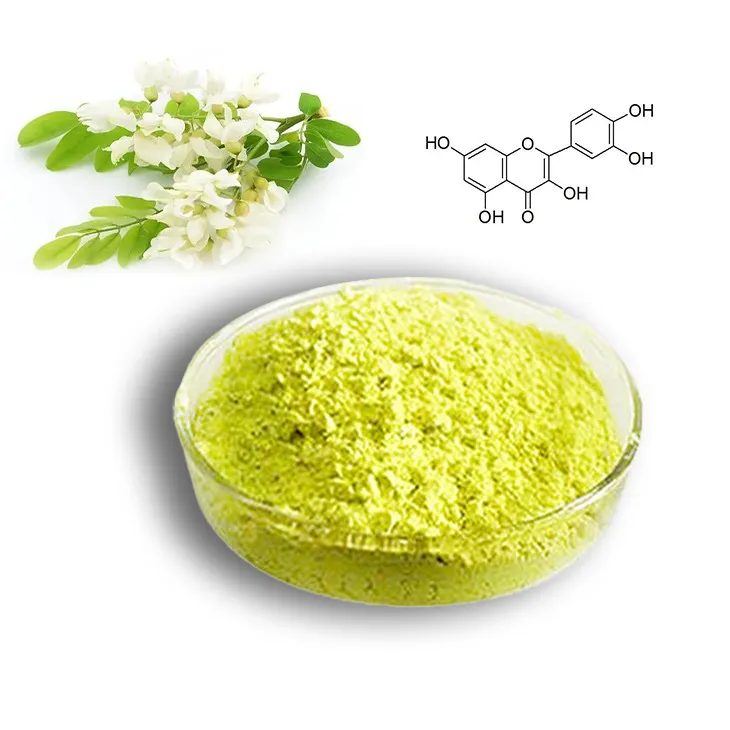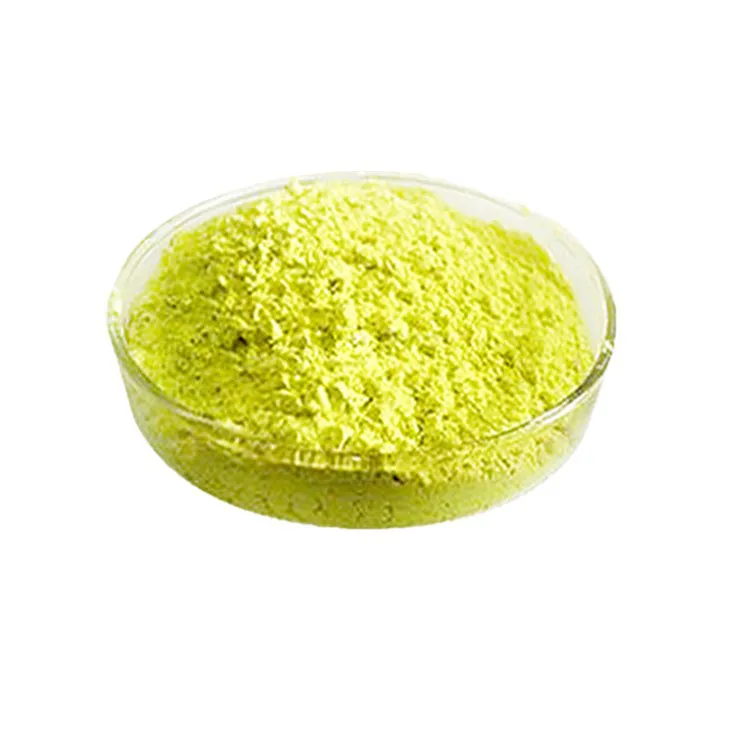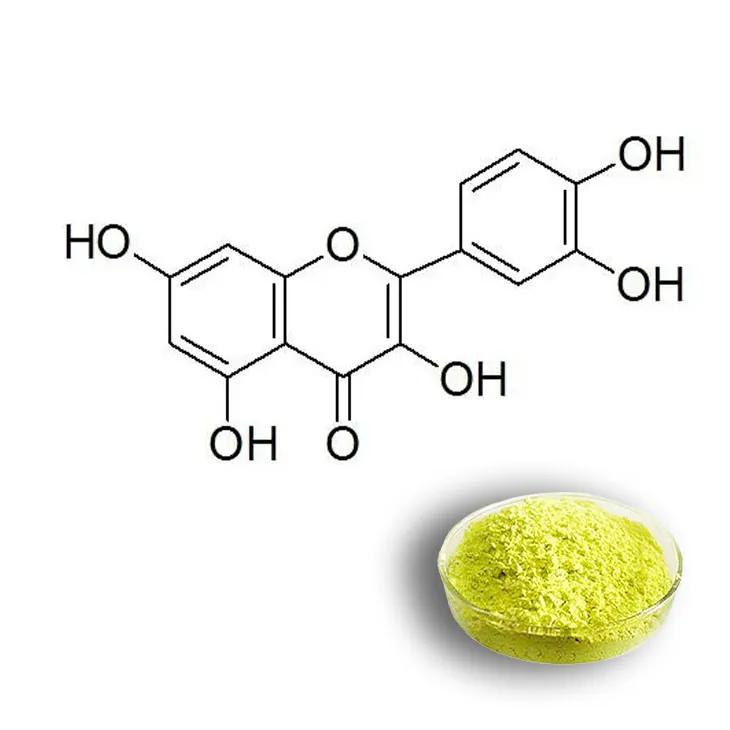- 0086-571-85302990
- sales@greenskybio.com
Quercetin: Benefits, Uses and Possible Side Effects
2024-11-11

1. Introduction
Quercetin is a flavonoid that has been garnering increasing attention in the field of health and nutrition. Flavonoids are a diverse group of plant - derived compounds known for their antioxidant properties, and Quercetin is one of the most prominent members. It is found in a wide variety of fruits, vegetables, and grains, such as apples, onions, berries, and buckwheat. Its presence in our diet is not only a matter of taste but also potentially a significant contributor to our overall well - being.

2. Benefits of Quercetin
2.1 Immune System Strengthening
One of the most well - known benefits of quercetin is its role in strengthening the immune system. It does this through multiple mechanisms. For example, it has been shown to enhance the function of immune cells, such as macrophages and lymphocytes. Macrophages are the body's first line of defense against pathogens, and quercetin can stimulate their activity, making them more efficient at engulfing and destroying harmful microorganisms. Lymphocytes, on the other hand, play a crucial role in the adaptive immune response, and quercetin can help regulate their activity, ensuring a balanced and effective immune response.
2.2 Anti - Inflammatory Properties
Quercetin also exhibits strong anti - inflammatory effects. Inflammation is a natural response of the body to injury or infection, but chronic inflammation can lead to a variety of health problems, including heart disease, diabetes, and arthritis. Quercetin works by inhibiting the production of inflammatory mediators, such as cytokines and prostaglandins. By reducing the levels of these substances in the body, it can help to keep inflammation in check and prevent the development of chronic inflammatory conditions.
2.3 Antioxidant Activity
As an antioxidant, quercetin is highly effective at neutralizing free radicals. Free radicals are unstable molecules that are produced as a by - product of normal cellular metabolism. If left unchecked, they can cause damage to cells and DNA, leading to premature aging and an increased risk of diseases such as cancer. Quercetin can donate electrons to free radicals, thereby stabilizing them and preventing them from causing harm. This antioxidant activity is not only beneficial for maintaining healthy cells but also for protecting the body against oxidative stress.

3. Uses of Quercetin
3.1 Potential Anti - Cancer Effects
There is growing evidence to suggest that quercetin may have anti - cancer properties. It has been shown to inhibit the growth and proliferation of cancer cells in vitro and in some animal models. The mechanisms by which it exerts its anti - cancer effects are diverse. For example, it can induce apoptosis (programmed cell death) in cancer cells, which is a natural process that the body uses to get rid of abnormal or damaged cells. Additionally, quercetin can interfere with the signaling pathways that are involved in cancer cell growth and survival, thereby suppressing the development and spread of tumors.
3.2 Alleviating Allergy Symptoms
Quercetin has also been found to be useful in alleviating allergy symptoms. Allergies occur when the immune system overreacts to harmless substances, such as pollen or certain foods. Quercetin can help to modulate the immune response in allergies by inhibiting the release of histamine from mast cells. Histamine is a chemical that is responsible for many of the symptoms associated with allergies, such as itching, sneezing, and runny nose. By reducing histamine release, quercetin can provide relief from allergy symptoms.
3.3 Cardiovascular Health
For cardiovascular health, quercetin has several positive effects. It can help to lower blood pressure by relaxing blood vessels. This is achieved through its ability to inhibit the action of angiotensin - converting enzyme (ACE), which is involved in the regulation of blood pressure. Quercetin can also reduce cholesterol levels, particularly LDL (low - density lipoprotein) cholesterol, which is often referred to as "bad" cholesterol. By improving blood pressure and cholesterol levels, quercetin can contribute to a reduced risk of heart disease.

4. Possible Side Effects of Quercetin
4.1 Gastrointestinal Disturbances
While quercetin offers many potential benefits, it is also important to be aware of its possible side effects. One of the most common side effects is gastrointestinal disturbances, such as nausea, vomiting, and diarrhea. These side effects are more likely to occur when high doses of quercetin are consumed. The exact mechanism behind these gastrointestinal side effects is not fully understood, but it may be related to the way quercetin interacts with the cells lining the digestive tract.
4.2 Interactions with Medications
Quercetin may also interact with certain medications. For example, it can interfere with the absorption or metabolism of some drugs. This is especially a concern for individuals who are taking medications for chronic conditions, such as diabetes or heart disease. Before taking quercetin supplements, it is important to consult with a healthcare provider to ensure that there are no potential interactions with any medications being taken.

5. Dosage and Sources
5.1 Dietary Sources
Quercetin is naturally present in many foods. As mentioned earlier, fruits like apples (especially the skin), onions, and berries are rich sources. Vegetables such as broccoli and kale also contain quercetin. Grains like buckwheat are another good source. Consuming a diet rich in these foods can provide a natural source of quercetin. However, the amount of quercetin obtained from diet alone may not be sufficient for those seeking to use it for its therapeutic benefits.
5.2 Supplement Dosage
When it comes to quercetin supplements, the appropriate dosage can vary depending on the intended use. For general health maintenance, a lower dose may be sufficient. However, for more specific conditions, such as alleviating allergy symptoms or for its potential anti - cancer effects, a higher dose may be required. It is important to note that the safety of high - dose quercetin supplementation has not been fully established, and it should be done under the guidance of a healthcare professional.
6. Conclusion
Quercetin is a flavonoid with a wide range of potential benefits, from strengthening the immune system to potentially fighting cancer and alleviating allergy symptoms. However, it also has possible side effects, especially when consumed in high doses or in combination with certain medications. Understanding both the benefits and risks associated with quercetin is crucial for those who are considering using it, whether through dietary sources or supplements. Overall, more research is needed to fully explore the potential of quercetin in promoting human health and to better define its optimal usage and safety profile.
FAQ:
What is quercetin?
Quercetin is a flavonoid, which is a type of natural compound found in many plants. It has various properties that can have positive impacts on health.
How does quercetin strengthen the immune system?
Quercetin can enhance the immune system by modulating the function of immune cells. It may stimulate the production of certain cytokines and antioxidants, which play important roles in the body's defense against pathogens.
What are the potential anti - cancer effects of quercetin?
Quercetin may have anti - cancer effects through multiple mechanisms. It can interfere with cancer cell growth, induce apoptosis (programmed cell death) in cancer cells, and inhibit angiogenesis (the formation of new blood vessels that tumors need to grow).
How does quercetin alleviate allergy symptoms?
Quercetin can stabilize mast cells, which are involved in the allergic response. By preventing the release of histamine and other inflammatory mediators from mast cells, it can help reduce allergy symptoms such as sneezing, itching, and runny nose.
What should one do if they experience nausea as a side effect of quercetin?
If nausea occurs as a side effect of quercetin, one should stop taking it immediately and consult a healthcare provider. The healthcare provider may adjust the dosage or recommend alternative treatments depending on the individual's situation.
Related literature
- The Health Benefits of Quercetin: A Review"
- "Quercetin: Mechanisms of Action and Potential Applications in Disease Prevention"
- "Quercetin and Its Role in Immune Function and Inflammation"
- ▶ Hesperidin
- ▶ Citrus Bioflavonoids
- ▶ Plant Extract
- ▶ lycopene
- ▶ Diosmin
- ▶ Grape seed extract
- ▶ Sea buckthorn Juice Powder
- ▶ Fruit Juice Powder
- ▶ Hops Extract
- ▶ Artichoke Extract
- ▶ Mushroom extract
- ▶ Astaxanthin
- ▶ Green Tea Extract
- ▶ Curcumin
- ▶ Horse Chestnut Extract
- ▶ Other Product
- ▶ Boswellia Serrata Extract
- ▶ Resveratrol
- ▶ Marigold Extract
- ▶ Grape Leaf Extract
- ▶ New Product
- ▶ Aminolevulinic acid
- ▶ Cranberry Extract
- ▶ Red Yeast Rice
- ▶ Red Wine Extract
-
Avocado Extract Powder
2024-11-11
-
Ginger Extract
2024-11-11
-
Coix Seed Extract
2024-11-11
-
Phellodendron Extract
2024-11-11
-
Black Rice Extract
2024-11-11
-
Buckthorn bark extract
2024-11-11
-
Feverfew Extract
2024-11-11
-
Beta Carotene
2024-11-11
-
Troxerutin
2024-11-11
-
Nettle Root Extract
2024-11-11





















